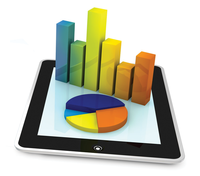
lucadp 123rf
Welcome
The Hess Uncertainty Principle
Heisenberg's Uncertainty Principle states that you can know either the velocity or the direction of an electron, but not both at the same time – at least not in a precise way, you can't. The Hess Uncertainty Principle states that you can't know (precisely) both the speed and the direction of computing. I thought of this during my recent trip to Austin, Texas, where I attended Dell World 2014. Dell turned 30 years old this year, and I never would have predicted, with any accuracy, the new direction that Dell has taken. Nor would I have predicted its current velocity. How could I have known both simultaneously? The short answer is that I couldn't. I'm not even sure that Michael Dell could have predicted, as little as five years ago, the speed and the direction of his company today.
But, this isn't just about Dell; the entire computing industry is accelerating and growing at such a rate that it's really difficult to track. No single person can tell you everything that's going on in this industry. It would require a team of people perhaps numbering in the hundreds to keep pace with the changes, the startups, the advances, the security issues, the capabilities, and the sheer volumes of information.
If you've spent any time in this business, you can look back at storage, data, computing power, server architecture, and memory requirements and find yourself overwhelmed. You're overwhelmed because what we called an enterprise-level server in 2004 would scarcely power the cell phone you now hold in your hand, or because servers now come equipped with more RAM than servers had disk space 10 years ago.
That's the uncertainty of computing. You don't know how big or how fast it's going to grow. Who would have predicted that Twitter would gain popularity in such a short amount of time? Try explaining Twitter to yourself 10 years in the past. Try imagining the amount of data Twitter generates, which some estimates suggest is greater than 100TB of data per
...Buy this article as PDF
(incl. VAT)
Buy ADMIN Magazine
Subscribe to our ADMIN Newsletters
Subscribe to our Linux Newsletters
Find Linux and Open Source Jobs
Most Popular
Support Our Work
ADMIN content is made possible with support from readers like you. Please consider contributing when you've found an article to be beneficial.




